
How to Identify High-quality Glassware?
Good glassware lasts longer and looks nicer. High-quality glassware has clear glass, feels balanced, and has smooth edges. It makes any table or setting look better and gives you more value over time.
Learning what makes glassware good helps everyone—from businesses to home users—choose pieces that look nice and hold up well.
This guide will show you simple tips to spot high-quality glassware easily.
Table of Contents
Key Characteristics of High-Quality Glassware
A. Material Composition
Types of Glass Used:
High-quality glassware is made from materials like soda-lime glass, borosilicate glass, and lead-free crystal. Each type has different qualities—soda-lime is affordable and durable, borosilicate resists heat, and lead-free crystal offers a bright, clear look.
How Material Affects Quality:
The material impacts the glass’s strength, weight, and durability. Higher-grade materials often feel sturdier and look clearer, adding to both beauty and lifespan.
B. Clarity and Transparency
Why Clear Glass Matters:
High-quality glassware is very clear and free from bubbles or marks. This clarity makes it more appealing and better for showcasing drinks or food.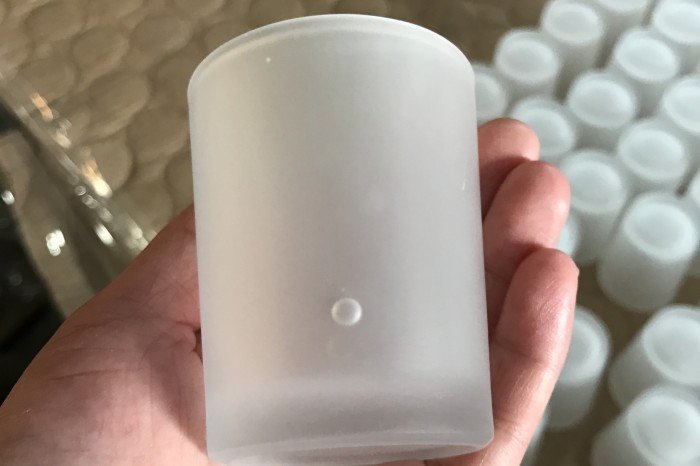
Visual Impact:
Clear glass catches light nicely, making everything look more attractive. This is especially important in settings where presentation matters, like restaurants or home dining.
C. Weight and Thickness
Finding the Right Balance:
High-quality glassware has a good balance of thickness and weight, making it comfortable to hold. If glassware is too thin, it may break easily, while overly thick glass can feel heavy and awkward.Effect on Durability:
The right thickness makes glassware strong and easy to handle, which helps it last longer.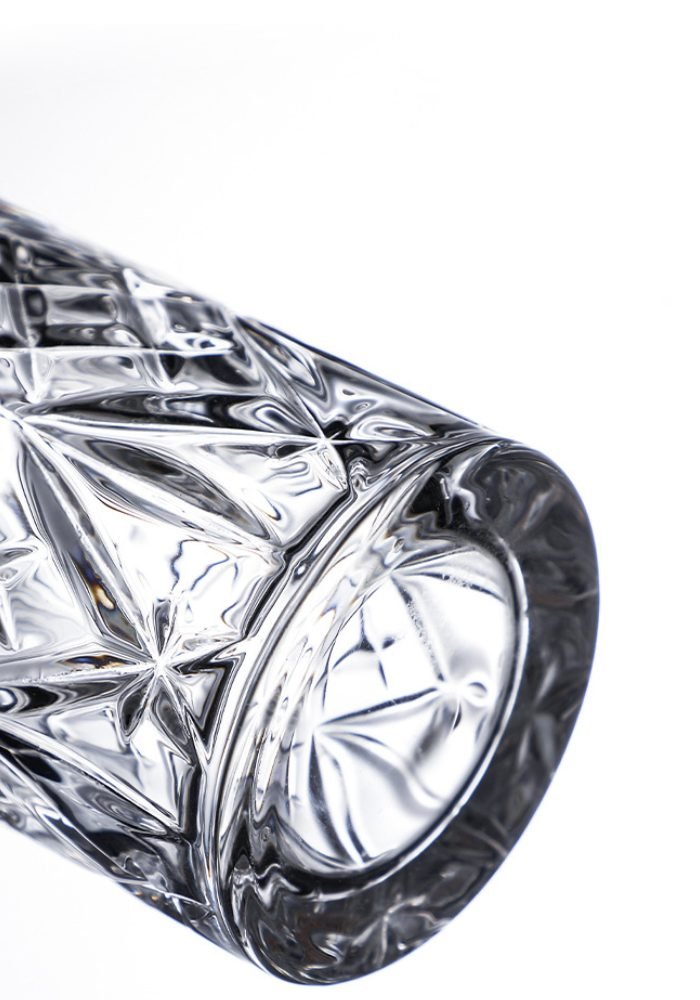
D. Sound Test for Quality
Testing with a Tap:
You can often tell quality by gently tapping the glass. High-quality crystal glass has a clear “ping” sound, while regular glass has a duller sound.What the Ping Means:
A ringing sound indicates that the glass is denser and crafted with care, which often points to higher quality.
E. Craftsmanship and Finishing
Quality Indicators:
Look for smooth edges, even thickness, and designs that don’t have visible seams. High-quality glass is carefully made with these details in mind.Impact on Appearance and Lifespan:
Well-made glassware not only looks better but also lasts longer because it’s crafted with precision and care.
Identifying High-Quality Glassware by Use Case
A. Glassware for Drinking (e.g., wine glasses, tumblers, whiskey glasses)
Quality Factors for Drinkware:
High-quality drinkware should feel balanced, comfortable, and easy to hold. It’s usually made from clear glass to show off drinks well.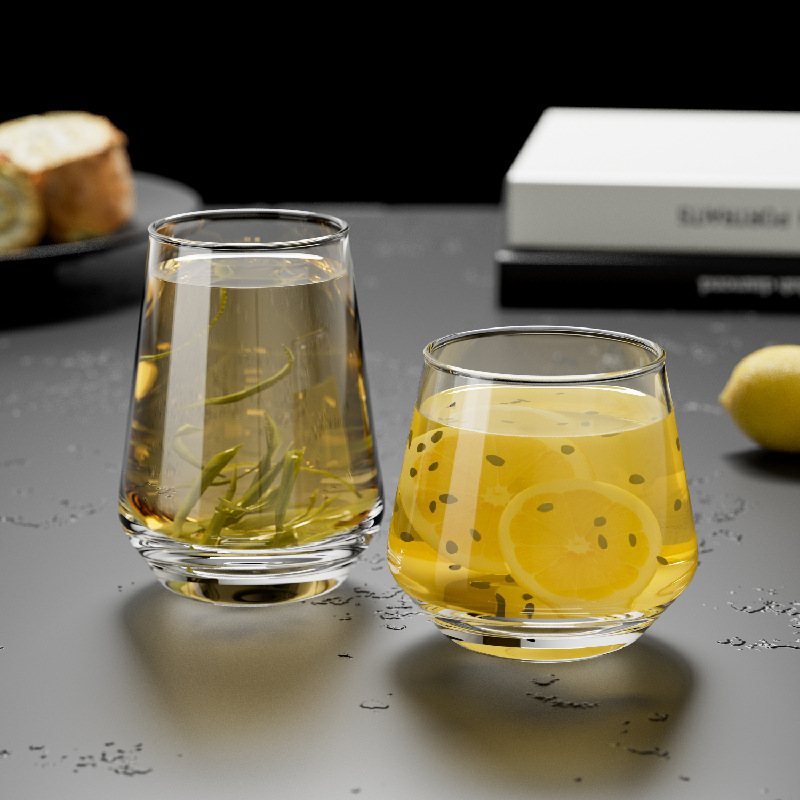
Stemless Wine Glasses 12oz 14oz – Bulk Orders Customizable
Shape, Rim Thickness, and Feel:
The shape enhances the drinking experience—for example, wine glasses have wide bowls to let wine breathe. A thin rim is a mark of quality, providing a smooth feel while drinking.
B. Glassware for Serving and Storage (e.g., bowls, jars)
Quality Indicators for Storage and Serving:
Glass bowls and jars should be durable and clear, showing off food nicely. Quality items will have thicker glass for added strength, which is essential for frequent use in the kitchen.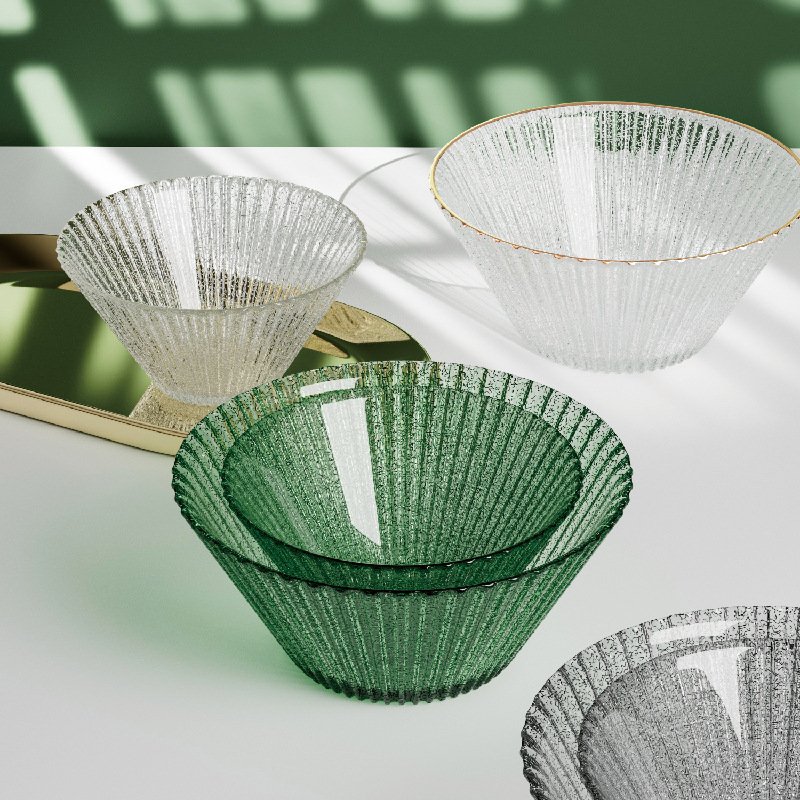
Glass Salad Bowls, Glass Serving Bowls
Durability and Visual Appeal:
High-quality serving pieces are both strong and attractive, enhancing the presentation of food while withstanding regular use.
C. Specialty Glassware (e.g., candle jars, decorative pieces)
Considerations for Decorative Glassware:
Decorative glassware, like candle jars, should be unique in design and crafted from heat-resistant glass, especially for items that will hold candles.Importance of Design and Heat Resistance:
For candles, the glass must handle heat safely. Unique designs add character and appeal, making these pieces stand out as decor.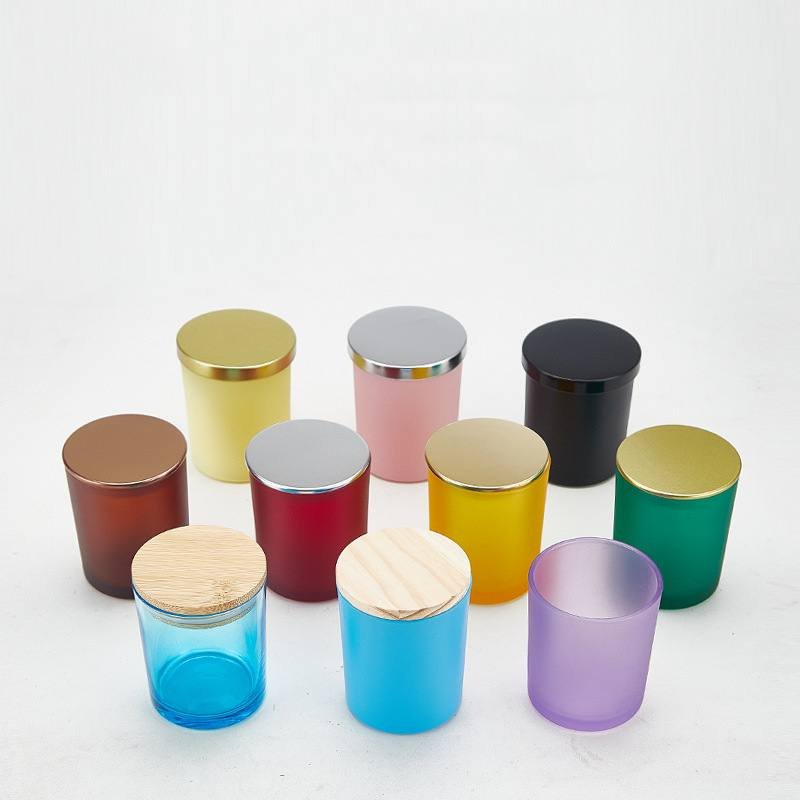
How to Recognize Quality in Different Types of Glassware Production Methods
A. Machine-Made vs. Handmade Glassware
Differences Between Machine-Made and Handmade Glass:
Machine-made glassware is produced in large quantities and tends to be more uniform, while handmade glassware often has slight variations, giving it a unique look. Handmade pieces are crafted by skilled artisans, adding a level of artistry that machine-made glass lacks.Advantages and Drawbacks:
Machine-made glassware is typically more affordable and consistent in shape, making it ideal for large orders. Handmade glass, while often more expensive, can offer unique and high-quality details, making it special and sometimes more durable due to the artisan’s careful crafting.
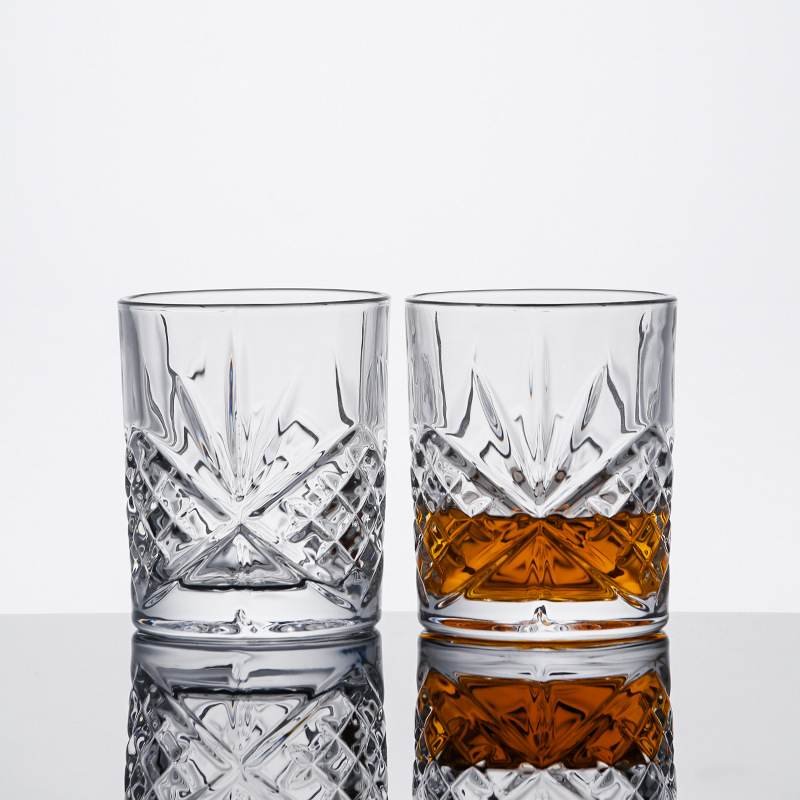
Machine Made Glasses
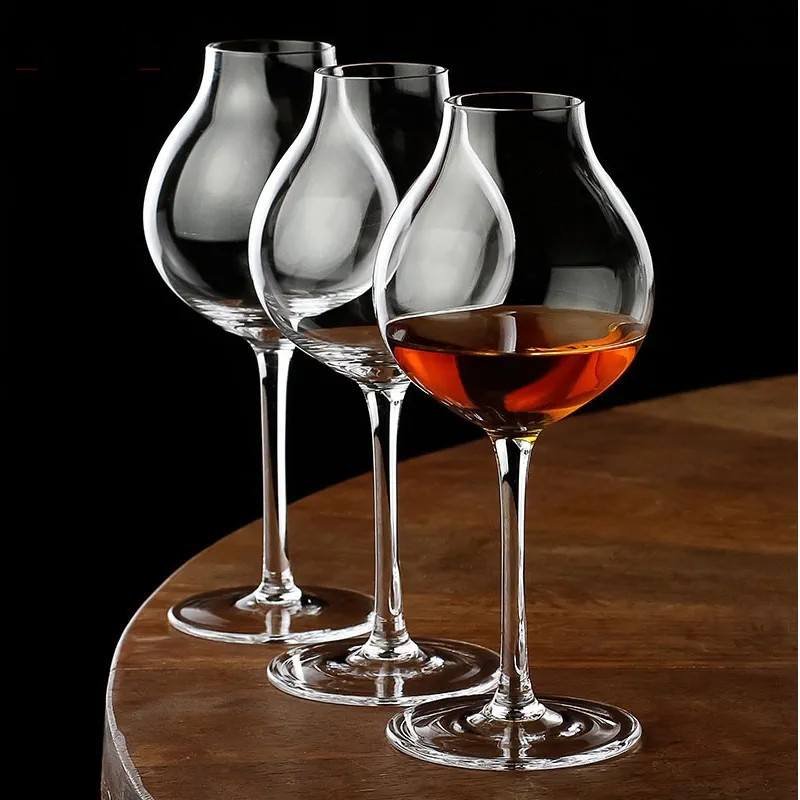
Hand Made Glasses
B. Techniques in High-Quality Glassware Production
- Key Methods:
High-quality glassware is often created using techniques like blown glass, pressed glass, and cut glass.- Blown Glass: Offers smooth, seamless shapes and is often used for drinkware.
- Pressed Glass: Made by pressing molten glass into molds, creating intricate patterns.
- Cut Glass: Involves cutting patterns into the glass, adding elegance and texture.
- Impact on Look and Durability:
Blown glass has a clean look with no seams, while pressed and cut glass offer intricate designs. Each method affects durability—blown glass is often light and delicate, while pressed and cut glass can be sturdier due to thicker construction.

Blown Glass

Pressed Glass
The Role of Brand and Manufacturer Reputation
A. Recognizable Brands Known for Quality
Reputable Brands:
Well-known glassware brands are often recognized for high standards in quality. For example, brands specializing in fine glassware or crystal are known for producing clear, durable, and aesthetically pleasing pieces.Brand Reputation as a Quality Marker:
Brands with a strong reputation have likely maintained quality standards over the years, making them a safer choice for consistent, high-quality glassware.
B. Choosing Reliable Manufacturers
Traits of Trusted Manufacturers:
Reliable manufacturers focus on consistent production quality, clear glass, and attention to detail. They are often transparent about materials and production methods.Value of Investing in Known Manufacturers:
Trusted manufacturers offer quality assurance, often providing warranties or guarantees. While their products may be priced higher, they provide long-lasting glassware that justifies the investment.
Tips for Long-Lasting Glassware
A. Cleaning and Handling Techniques
- Proper Washing Techniques:
To keep glassware clear and scratch-free, hand wash using mild soap and warm water. Avoid using abrasive sponges, which can scratch the surface. If using a dishwasher, place glasses carefully to avoid collisions and use a gentle cycle.
B. Storing Glassware Safely
- Best Practices for Stacking and Storage:
When stacking glassware, place a soft liner or cloth between each piece to prevent scratches. Store glasses upright to avoid pressure on delicate rims, and organize them in a stable place where they won’t easily tip or bump into other items.
C. Recognizing When Glassware Needs Replacement
- Signs of Wear and Tear:
Replace glassware if you notice cracks, chips, or cloudiness that won’t wash off, as these can weaken the glass and create safety risks. Regularly inspect your pieces to ensure they remain in good, usable condition.
Can glassware go in the dishwasher?
Yes, many types of glassware can go in the dishwasher, but it depends on the type and quality of the glass. Here are a few general tips:
Everyday Glassware: Most everyday glassware, like drinking glasses and simple tumblers, are usually dishwasher-safe. Place them on the top rack to avoid excess heat and prevent breakage.
Fine and Delicate Glassware: Delicate glassware, like thin wine glasses or crystal pieces, is often best washed by hand to avoid damage. The heat and detergent in the dishwasher can cause cloudiness and weaken delicate glass over time.
Avoid Overcrowding: Ensure glass pieces don’t touch or bump against each other, which can cause chips or cracks.
Use a Gentle Cycle: If you’re putting glassware in the dishwasher, select a gentle or glassware-specific cycle and use mild detergent to protect the clarity and finish.
How to remove stains from glassware?
Here are some simple methods to remove stains from glassware:
Vinegar Soak:
Fill a basin with equal parts warm water and white vinegar. Soak the glassware for about 30 minutes, then scrub gently with a soft sponge to remove any spots. Rinse with warm water and dry with a soft cloth.Baking Soda Paste:
Make a paste using baking soda and a bit of water. Apply it to any stubborn stains or cloudy spots, then scrub gently with a sponge or cloth. Rinse thoroughly with warm water.Lemon Juice for Shine:
Rub the glassware with a slice of lemon or use lemon juice mixed with water to brighten and remove mild stains. After rubbing, rinse with warm water and dry with a lint-free cloth.Salt and Vinegar for Tough Stains:
For more persistent stains, sprinkle salt inside the glassware, then add a small amount of vinegar. Swirl it around, scrub gently, and rinse. The salt acts as a mild abrasive to lift stains.Rinse with Warm, Soapy Water:
After using any of these methods, always rinse the glassware thoroughly with warm, soapy water to remove any residue.
How to store glassware properly?
Proper storage of glassware can help keep it safe, clean, and free from damage. Here are some tips:
Store Upright or Upside Down:
- Everyday Glassware: Store upright to prevent dust from settling inside.
- Delicate or Stemmed Glassware: Store upside down to avoid pressure on the rims, which are more fragile and prone to chipping.
Avoid Stacking Fragile Glasses:
Avoid stacking delicate glasses like wine glasses, as this increases the risk of breakage. For glasses that can be stacked, place a soft cloth or liner between each one to prevent scratches.Use a Lined Shelf or Soft Surface:
Line the shelf with a soft mat, cloth, or non-slip pad to reduce the risk of chipping and make the shelf surface gentler on the glass.Organize by Use:
Keep frequently used glassware within easy reach to minimize handling of other items and avoid unnecessary movement.Separate Heavy and Light Glassware:
Place heavier, more durable items on lower shelves to prevent accidents. Lighter, more delicate pieces should be stored higher up to reduce the risk of accidental breakage.Use Glassware Storage Racks for Stemware:
For stemmed glasses like wine glasses, consider using hanging racks or stemware holders to prevent pressure on the rims and free up cabinet space.
Conclusion
Choosing high-quality glassware adds elegance, durability, and long-lasting value to any setting. Investing in well-made pieces ensures a better experience and minimizes the need for frequent replacements.
Ready to add quality glassware to your collection? DM Glassware offers a range of beautifully crafted pieces designed to enhance any table or setting. Explore our products to find glassware that combines elegance with durability for lasting enjoyment.
DM Glassware is providing custom glasswares for various occasions.
Our main products are machine-made glasswares, glass cups, glass drinkwares and tablewares for home and kitchen use. Such glasses like glass tumblers, glass mugs, whiskey glasses, shot glasses, glass candy jars, glass bowls, beer glasses, etc.
We also recommend the most suitable packaging method based on different sales types, such as different display boxes, adding stickers, tags, etc.
Recent Posts


What Is Scotch Whiskey Glass?
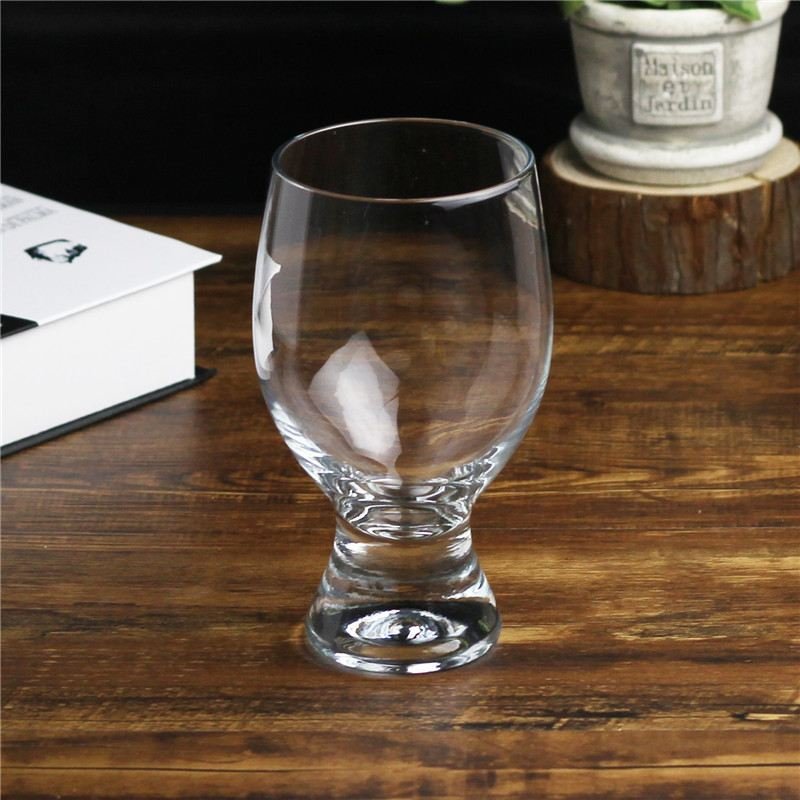
Classic Tulip-Shaped Whiskey Tasting Glass

